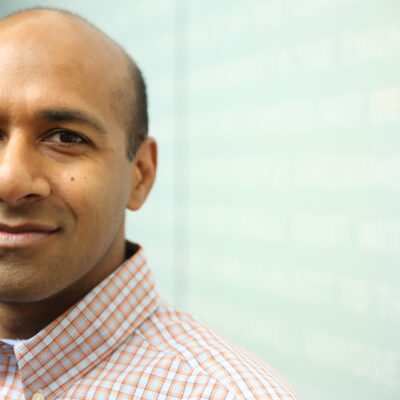Although plaintiffs' attorney Professor David Cole did a superb job of focusing the Court's attention on how the law prohibits pure political speech, lurking not far in the background was the law's effect on humanitarian assistance. Justice Anthony Kennedy, who is often a key swing vote on the Roberts Court, devoted his first question to that issue, asking whether the government could "forbid any person from giving tsunami aid to one of these organizations."
This was not an abstract hypothetical; I spent several weeks in my ancestral home of Sri Lanka doing relief work in the immediate aftermath of the tsunami. While there I saw first-hand how humanitarian organizations could not help many of the victims because they lived in territory controlled by the Liberation Tigers of Tamil Eelam, or LTTE, one of the State Department's designated terrorist organizations. (I wrote about my experience in an ACS Issue Brief, "A Hungry Child Know No Politics:" A Proposal for Reform of the Laws Governing Humanitarian Relief and "Material Support" of Terrorism.)
As the questioning returned to that issue several times, at least some of the justices seemed open to Solicitor General Elena Kagan's argument that Congress could ban such humanitarian aid consistent with the First Amendment. As Justice Kennedy put it, "if you get tsunami money that frees up your other assets for terrorist money." Professor Cole countered by focusing on some of the obvious weaknesses in the argument: if Congress can ban any support that is "fungible" with money that a designated group might otherwise spend, then what about legal support? The answer, said Kagan, was "yes . . . to the extent that a lawyer drafts a brief for the PKK or the LTTE . . . that would be prohibited."
That response did not go over well. Justice Kennedy asked if Kagan would "stick" to that view, and when she did, Justice John Paul Stevens said that meant Professor Cole's activity in this very case must be unlawful. After Justice Sonia Sotomayor expressed yet more skepticism, Justice Stephen Breyer said what others were clearly thinking: "I'm more worried about the lawyer."
The specter of punishing people who form so intricate a part of the Court's daily activities obviously troubled several of the justices. As an attorney who represents people charged with terrorism offenses on a regular basis, I too am worried about us lawyers, and was glad to see that I'm not alone. Yet the Court's sympathy for that particular class of victims struck me as rather odd. I could not help but wonder if the justices, and Kagan for that matter, would have been so sanguine about allowing the government to ban pure humanitarian assistance if they had been as close to relief workers as they were to lawyers. Would they have accepted a proscription on vital assistance to tsunami victims if they had seen the devastation I saw the day after that giant tidal wave killed 30,000 Sri Lankans in a matter of minutes? Surely if they had looked into the eyes of the children who had lost their parents in the blink of an eye, or seen the desperation on the faces of refugees who needed drinking water at the camps I visited, they would not have allowed Congress to prohibit relief groups from giving aid to the people who could most efficiently deliver it to the victims, even if they happened to be humanitarian workers who were members of the LTTE. While the LTTE no longer controls territory in Sri Lanka, the material support laws at issue in Humanitarian Law Project continue to vex humanitarian groups around the world.
The American Civil Liberties Union (for whom I work as an attorney) filed an amicus brief on behalf of nine humanitarian organizations, including the Carter Center, the Christian Peacemakers, and Human Rights Watch. The groups teach conflict resolution, provide humanitarian aid, and engage in various other activities that require them to work with designated terrorist organizations. These groups told the Court that they may be forced to severely curtail many of their activities because of the material support laws, and asked the Court to recognize that the First Amendment protects their right to provide humanitarian assistance that is intended to promote non-violent, humanitarian purposes, even if it also constitutes "material support" to the designated terrorist groups under the broad language of the Patriot Act.
As I remembered the people I had seen suffer in Sri Lanka, it filled me with great sadness to watch President Barack Obama's hand-picked representative to the Supreme Court defend a position so blind to the needs of innocent civilians. Twenty years ago, President Reagan famously authorized food aid to the Communist dictatorship in Ethiopia at the height of the Cold War, proclaiming that "a hungry child knows no politics." He could just as easily have been referring to the children of Pakistan, Colombia, Iraq, or any number of other countries today, where humanitarian groups have sought to ameliorate the misery suffered by civilian victims of war and natural disaster. The Red Cross has enshrined that same principle in its own Code of Conduct, which states that "the humanitarian imperative comes first. The right to receive humanitarian assistance, and to offer it, is a fundamental humanitarian principle which should be enjoyed by all citizens of all countries."
We can only hope that Justice Kennedy and his colleagues will remember those widely-revered words, and those of the president who appointed him, as they consider how to resolve this important case.
This piece was originally written for the American Constitution Society.

